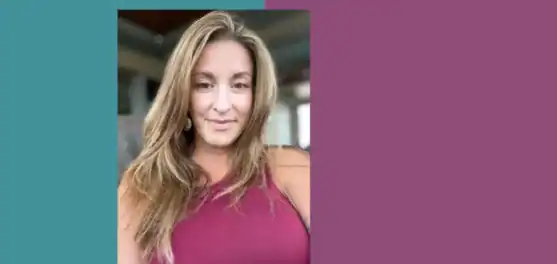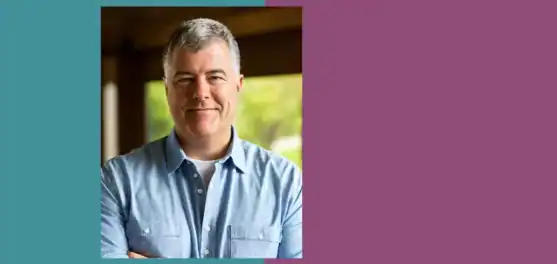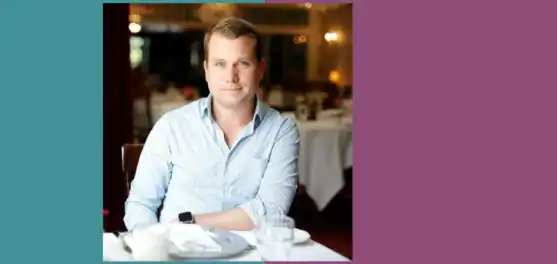For a parent in recovery, restoring relationships with your children can be daunting. It’s about rebuilding trust, perhaps learning how to be an effective parent in recovery, all while managing the daily issues that every parent faces. As your children grow, so will their capacity for understanding. As you grow in recovery, so will your ability to have an honest discussion about where both have been and where you are now. This conversation focuses on a mother and daughter — Brandee Izquierdo, SAFE’s former Executive Director, and Britnee Izquierdo, her daughter.
BRITNEE: When I found out that you were in recovery, you were really IN it. You weren’t brand new anymore. What’s changed for you since you were new in recovery?
BRANDEE: Recovery for me in the beginning was really just about not using, and staying out of jail. At that point, recovery was just about learning. Even now it’s about learning, but now it’s more about reflection and self-awareness. I just do things differently and I process information differently now. I don’t act out in anger, I think before I act. In the beginning of recovery, I showed up because people told me I have to show up.
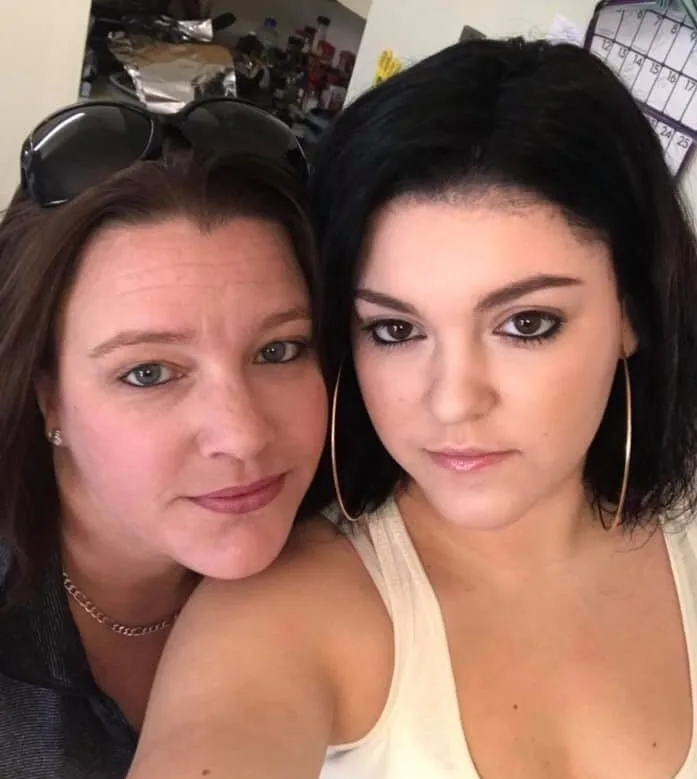
BRITNEE: Not because you wanted to?
BRANDEE: Even today, there are days when I really don’t want to show up but recovery has taught me to show up to matter what. For example, in early recovery I wanted to be in everything. I wanted to be invited to everything.
BRITNEE: I remember. Even after your first year, we would go to all the functions, all the breakfasts…
BRANDEE: In the beginning, I had to be in it to learn; now I’m in it to evolve. In recovery, there is always an evolution to it. I built my foundation in early recovery and now I thrive in that foundation. The people I met in early recovery are still my friends, but there are deeper connections for me now. I don’t necessarily go to as many meetings, and I’ve expanded my recovery into different areas of my life. I just have more self-awareness and because of that, I act and react differently.
BRITNEE: What’s different?
BRANDEE: I accept that people are who they are. There’s nothing I can ever do to change them, there’s nothing I can do to change you. I’m doing my best as a parent to Kylee and Chino now, but there are some people I will never change. But what I can do is to change how I react.
BRITNEE: I feel that it makes your relationships better.
BRANDEE: I used to really thrive on anger and acting out in anger, but what I’ve learned in recovery is that it takes two people to fight. If I choose not to participate, there is no fight. So it’s really about how I react to situations and how I process information differently.
BRITNEE: And you think your recovery did that for you?
BRANDEE: Oh, yes. In early recovery, I was still learning so I would still act out on all those bad behaviors. But I’ve learned over time not to act out and I continue to do that – it’s a daily process.
BRITNEE: What’s the most important thing you can say to another parent in recovery?
BRANDEE: I want other parents in recovery to understand parenting is a privilege, not an entitlement. And everyone recovers at their own pace, and that includes your children. Just because there are spurts of growth in my recovery, it does not mean that my kids are going to recover in the same way.
It takes time, energy and effort to really build relationships with your children. Because you’ve done a lot of damage, so just because you are in recovery doesn’t mean they’re going to accept it overnight. It takes a lot to forgive and even sometimes forgiveness isn’t going to be there. But it’s not how you were in the past – it’s what you do to stay in the present and continue that recovery path. It’s all about consistency. So what does my recovery mean to you?
BRITNEE: Your recovery means that you’re able to be there for us now; you’re able to be a mom now. You weren’t able to be a mom before, and I don’t have to be the mom anymore. It means stability, like we have stability now.
There is also stability where you live, because we never lived in a place for more than a year. We were moving around all the time. I went to three different high schools, but the younger kids don’t have to do that now.
You’ve now been here in your house for five years. I’ve never lived anywhere for five years. But my son Daylon knows this house – he grew up here and will always remember this house. He’ll remember his grandmother’s house forever. It’s not only stability for me, and for us, and for the kids… it’s stability for my kid too. And you’ve just bought a house that you are going to be in forever.
My sister and brother have a mom now; they are able to have a childhood. I mean, we played sports, but we moved around so much we never were able to say “this is my team.” But, Chino was able to have that. You’re able to be there for him and show up for his games. You were never able to show up before.
I feel like your recovery is stability and we’ve grown as a family. We are able to look at you as a mom, but we’re also able to look up to you now. You’re able to give us what we need now. We watched you go from working at “America’s Best Wings” to now having a great job, and you’re known for something good now.
You showed us that college is an option – I never thought that we’d be able to go to college. You’re in your doctorate program now. I feel like it gives all of us drive too, because it’s “Look what Mommy did!” So if Mommy can do it, I can do it. But we weren’t able to do that before.
I don’t think that you push us to do anything, but you let us know that it can be done.
I feel like with your recovery, there’s just a lot of growth and you are a completely different person. You’re an actual adult and a mom and everything. (Laughter)
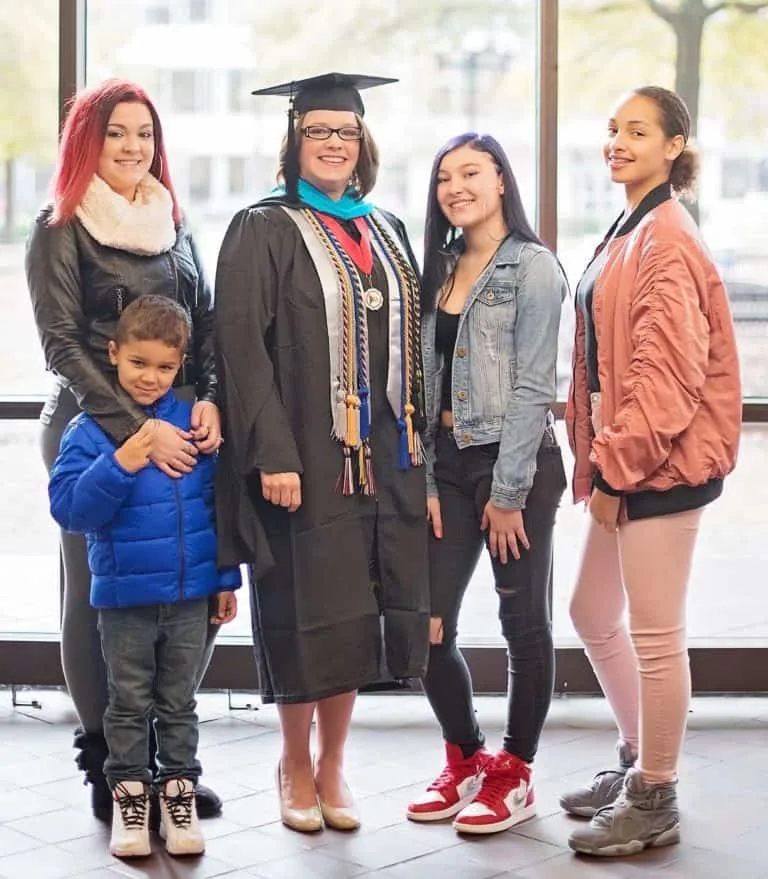
You showed us that college is an option – I never thought that we’d be able to go to college. You’re in your doctorate program now. I feel like it gives all of us drive too…
Britnee Izquierdo
BRANDEE: So, what advice would you give to someone who has a parent in recovery?
BRITNEE: You started drinking when I was really young so that’s the only mom that I ever knew. That’s how I grew up. I would say that it’s something that you have to do together. You have to go to the meetings with them and you have to understand who they are, not only your parent but also the other people who have stories like them. Because addiction is a disease, and your parent is sick.
When you go to meetings with your parent, you realize that addiction is not who your parent really is. And even when you go to meetings, you watch them change. You see the changes; you physically see the change yourself. When Kylee and Chino told me that you had changed; I didn’t believe it until I finally saw it for myself.
It’s like when I first went to the meetings, and I thought none of this makes sense. But you have to submerge yourself in what your parents are in, and then you understand their recovery. If you are a parent, I think it’s important to for your kids to understand the 12 steps that you go through. I don’t know them by heart, but when you did the one step – when you had to write down your resentments, make amends, and stuff like that.
BRANDEE: My inventory.
BRITNEE: I felt like you were always really open with us with the steps and everything. It’s not like your parent is the only one recovering – like you may not be recovering from an addiction, but you are recovering from their addiction. It’s something that you just have to do together; it can’t be something that your parent does alone.
I know I had a lot of resentment for you. In the beginning, I never thought that you would be in long-term recovery. Now, I would tell people you have to realize that person in addiction wasn’t your parent and they can change.
I would tell others that you don’t know about how your parents feel, I’m sure they feel bad about everything that they put you through. But you have to be there to support that they are doing the right thing, and know they are trying to make a change and are trying to be a parent – but it’s a really long process.
Understand that recovery is not going to happen overnight, and I think going to the meetings with them helps. When you hear it from other parents about the struggles that they’ve gone through with their kids, you see that it is possible.
BRANDEE: Does it give you hope?
BRITNEE: That’s a good word. It gives you hope for a better relationship with your parent. When you got into recovery I thought, “She will be my mom, but she’ll also be able to be my friend at this point because I am older and an adult now.” But for the younger kids, I’m sure it gave them hope that they were going to have their mom.
Chino and Kylee were able to have a childhood. Even Daylon, he came to the meetings and everything like that so he understands your recovery too even though he is only six. He understands your recovery. Daylon knows that you don’t drink, that you don’t do that because you can’t.
BRANDEE: No drinking, no drugs.
BRITNEE: He didn’t go through your active addiction with you, but it’s important for Daylon to go to the meetings and to understand that’s who you are. It’s not something that you should be ashamed of, or ashamed to share with your kids or your grandkids, because they need to know your story and they need to know how you changed. They need to know how this can help you, especially because the addictions…
BRANDEE: It’s generational. It’s genetic.
BRITNEE: Exactly. Because you never know if you are going to go through that, and even if you are, you may not be able to stop it, but you know that there’s an option out there to help you and you know there is somebody you can go to.
BRANDEE: You and I, again, we were not very close from when you were little or even as you were growing up. We had issues, but you’ve turned into my best friend. You’re the one person that knows everything about me, and no matter what, you still continue to come back and we enjoy being together. What are your hopes for what the future holds for the two of us?
BRITNEE: The fact that we can sit down and do something like this. We could have never done this before. There were never times that I remember sitting down with you, and just having a conversation and laughing. That wasn’t a thing.
BRANDEE: It’s just gotten into an enjoyable routine because our relationship is easy, and I sometimes think that even if there are times that go by where we don’t see each other too much, that we have to see each other. We actually miss each other.
I didn’t have a really close relationship with my mom, and what I see for us in the future is that we continue to have a close relationship, and as you get older it will just continue to get closer and closer. I’ve always wanted that – I’ve always wanted that in a family and I’m just glad that we have that now. You know, you’re my best friend.
BRITNEE: I think the same thing, and I just hope it continues to grow and get better – not only for me, but for Daylon too. When we were growing up, because you were in active addiction because we didn’t have a close family. I was close to my brothers and sister but that was it.
But now that you are in recovery, Kylee and Chino will have kids eventually, but I want Daylon to have a relationship with them. Now that is possible because you are the common denominator – we can all come to you. But hopefully it will just continue like, not only for me and my brothers and sister, but for Daylon and whatever kids they have. I think it’s going pretty well. Hopefully we continue down this path.
BRANDEE: Recovery – that brings it all together.
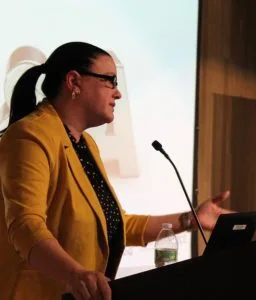
Brandee Izquierdo is the former Executive Director of SAFE Project. She is a person in long-term recovery, and the mother of four children aged 12 to 25. Brandee has led advocacy efforts to expand access to behavioral health services and recovery support services while providing technical assistance both nationally and internationally, empowering others within the recovery movement.
Britnee Izquierdo is a Recovery Ally, and the mother of Daylon. She is Brandee’s eldest daughter, and was born when her mom was 17. Britnee experienced the life of addiction from a daughter’s perspective. She has empathy for children who struggle and worked with AmeriCorps as a literacy tutor, sharing her own experiences with youth because of her own childhood. Britnee is a supporter of her mother’s recovery and hopes to inspire others.
Share Your Story
This epidemic has given us one common experience: we have all become experts in our own way. At S.A.F.E. Project, we believe that we strengthen one another by sharing our stories. Whether you are in recovery, lost a loved one, or are making a difference in your community, you can help others on this journey. We’d like to hear from you.

